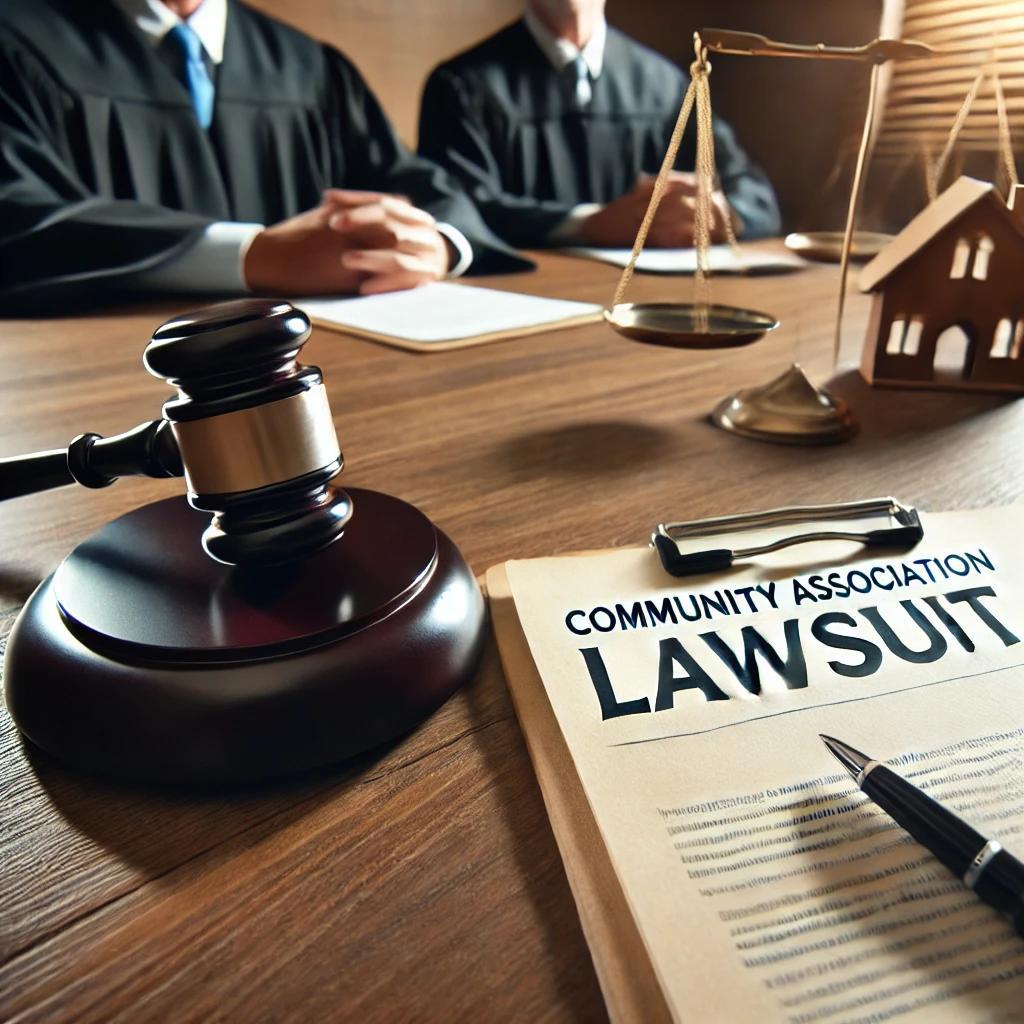Why Community Associations Face Lawsuits and How to Respond

Community and condominium associations are established to safeguard the interests of all their members. However, situations can arise where one or more residents feel the association is not acting in their favor. Ideally, a reasonable solution can be reached, but if not, the association—and potentially its board members—may find themselves facing a lawsuit.
Typical Lawsuits Against Community Associations
Homeowners may sue their association for various reasons, but their grievances usually center around recurring issues depending on the type of community they live in.
In single-family home communities, legal disputes often stem from governance-related issues. Procedures, such as how board member elections are managed, are becoming increasingly scrutinized and subject to claims or threats of legal action.
Conversely, condominium associations and properties with shared walls face lawsuits predominantly related to repair and replacement matters. These issues are usually insurable unless there’s evidence of severe negligence or misconduct. The most frequent claims involve property damage, with homeowners asserting that the association is liable for repairs to their units.
When adjacent unit owners lack insurance, the association is often implicated. The responsibility for repairs doesn't always align seamlessly with insurance coverage, creating complications. For instance, insurance policies for associations might cover damage from interior plumbing leaks, even if the unit owner is responsible for maintaining those fixtures.
How to Handle a Lawsuit: Community Association Guidelines
Even associations that adhere to all protocols may be unable to prevent a lawsuit from a determined resident. If your association is served with legal papers, consider the following steps:
Consult with Your Association Attorney
Your attorney should be your primary contact if a lawsuit is filed. Their guidance will help navigate the legal complexities and mitigate further issues.
Inform Your Insurance Agent or Broker
It’s crucial to report the lawsuit to your insurance carrier promptly. Failing to do so could invalidate coverage if the lawsuit is insurable. Insurance companies may refuse coverage if notified too late.
Keep Case Details Private
Avoid discussing the legal case at open board meetings, on social media, or with individuals. Conversations about the lawsuit should only occur in closed sessions. It's important to craft any public statements about the case carefully, ideally with legal counsel.
Avoid Direct Engagement with the Plaintiff
Once litigation is initiated, all communication between the board and the homeowner who filed the lawsuit must be conducted through legal representatives.
Considering Out-of-Court Settlements
Even if your board feels justified, pursuing a lawsuit to the bitter end may not be wise. It’s crucial to evaluate the financial implications against the potential cost of a settlement. Legal battles can drain resources, sometimes making settlements more economical.
If your lawyer suggests litigation, consider seeking a second opinion. Gathering additional information could potentially save the association significant costs. Continuous dialogue about settlement prospects is advised, as the majority of legal disputes are resolved this way.
Monitor your attorney's progress closely. Ensure they are actively managing the case, remain informed, and address the matter at routine board meetings.
While litigation is never easy, understanding the root of the homeowner's dissatisfaction and adhering closely to legal advice can help minimize the impact on your community association.





